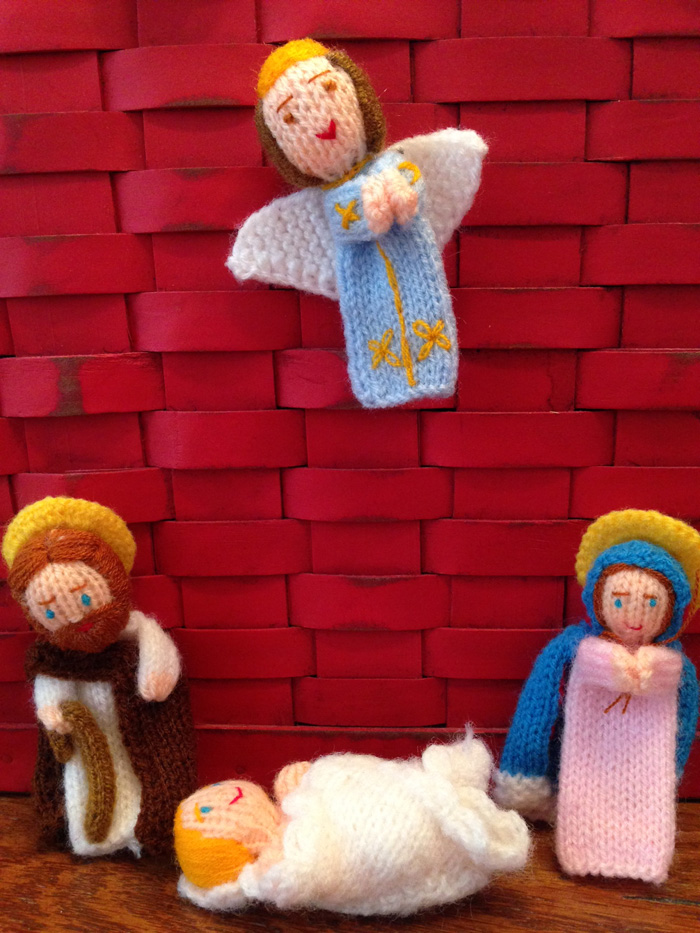Writers and storytellers of all kinds are encouraged to take deep looks at existing successful works. If you’re a screenwriter, you’re encouraged to watch critically and commercially successful movies and read scripts, scripts and more scripts. If you’re a novelist, you’re encouraged to read bestsellers in your genre and literary fiction. “How to” books by writing gurus are packed with respected examples.

Adorable finger puppets hand knitted by Peruvian women. Want to help them out? Check out FairTradeHelps.org and www.lucuma.com
As a writer/teller of true stories from my life I watch live stories on comedy stages and festivals, listen to recorded stories at themoth.org and This American Life and read memoirs, biographies and blogs. I do all this in hopes of becoming the absolute best teller of true-life tales I can be.
As Christmas approached, it occurred to me that there was a story I hadn’t considered as a major example. The story isn’t a first person account, but told by a man named Luke from eyewitness accounts. Yet it is still one of the most widely read true-life narratives: read by millions every year, produced on stages large and small and captured on film. I’m talking about Luke’s version of the birth of Jesus.
“What on earth can my life possibly have in common with the miraculous birth of the savior with its angelic announcements and wise men bearing gifts?” you ask. Here are some thoughts that might help jog your memory.
Jesus was born in Bethlehem, not Nazareth where his parents lived, because of a government census. Were you born in a location somehow different than might be expected?
Though Jesus was wrapped in the normal swaddling clothes, his first bed was an animal trough because the local inn was already full of travelers. Were unusual accommodations a part of your birth because of some special case?
Angels announced the birth of Jesus, the savior, to shepherds in fields close by. How was your birth announced to family, friends, coworkers? Was a formal announcement mailed? What was special about you? Were you the firstborn, unexpected blessing after years of trying, special in some way? While there is only one savior of the world, what hopes and reams did your parents and others hold for you before you were old enough to be able to have hopes and dreams of your own? Who came to see you because they got the word of your birth?
Heavenly hosts appeared with the angels praising God. What words of rejoicing were spoken about you?
What is missing from this account that is frequently a part of this story? Wise men, who came to worship, bringing extravagant gifts of gold, incense and myrrh. What gifts were presented to your parents at, or shortly after, your birth? The wise men’s gifts enable toe family to flee to Egypt until Herod stopped looking for the child. Were any of the gifts given to you specially made for or tailored to you in any way?
This Christmas season as you hear the story of Jesus’ birth, remember your own story as well. What were hopes and dreams for you then. What are your hopes and dreams today? If you took my book recommendation and obtained Epic: The Story God is Telling, how are you a part of God’s larger story today? Yes, friend, our lives really are epic!

